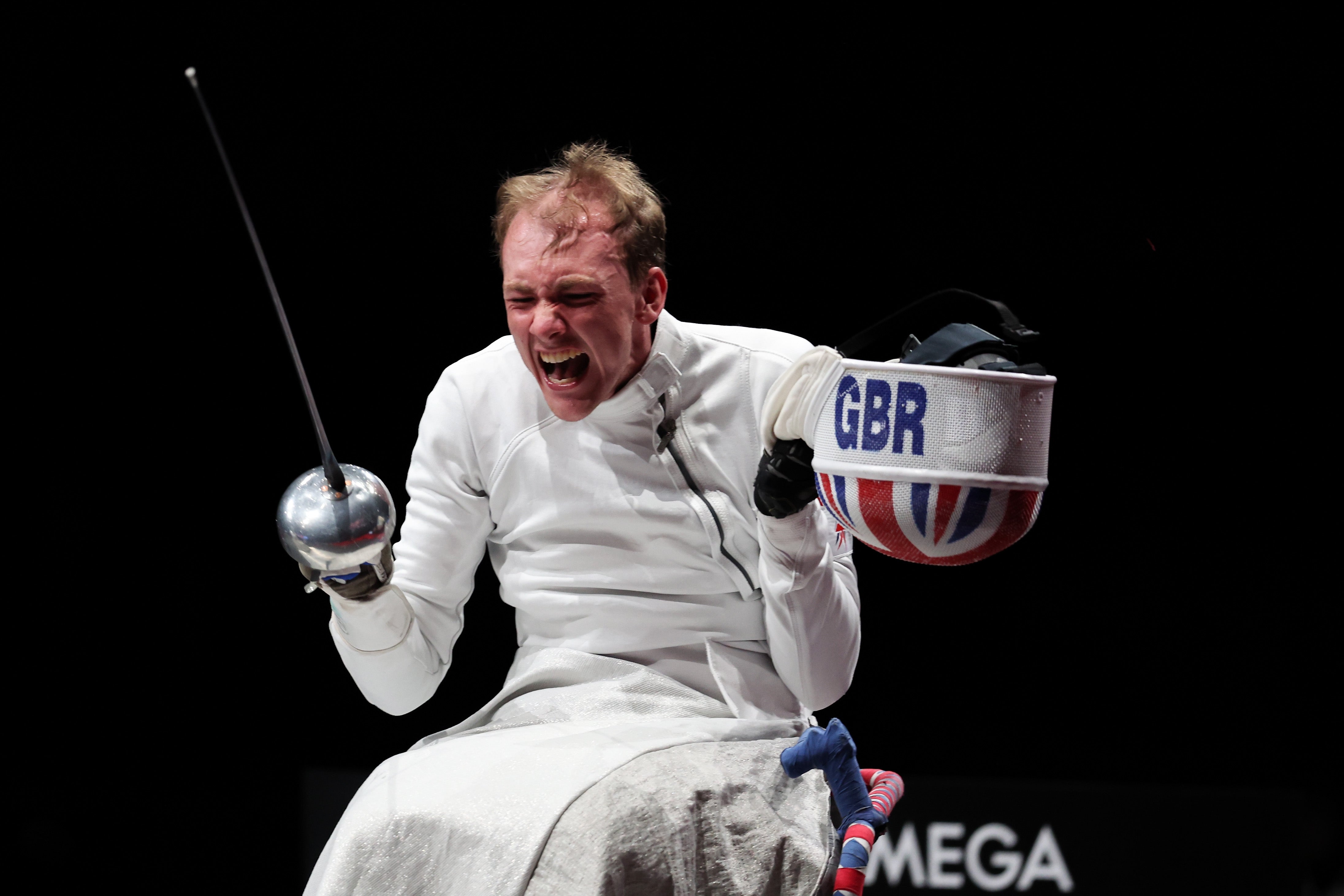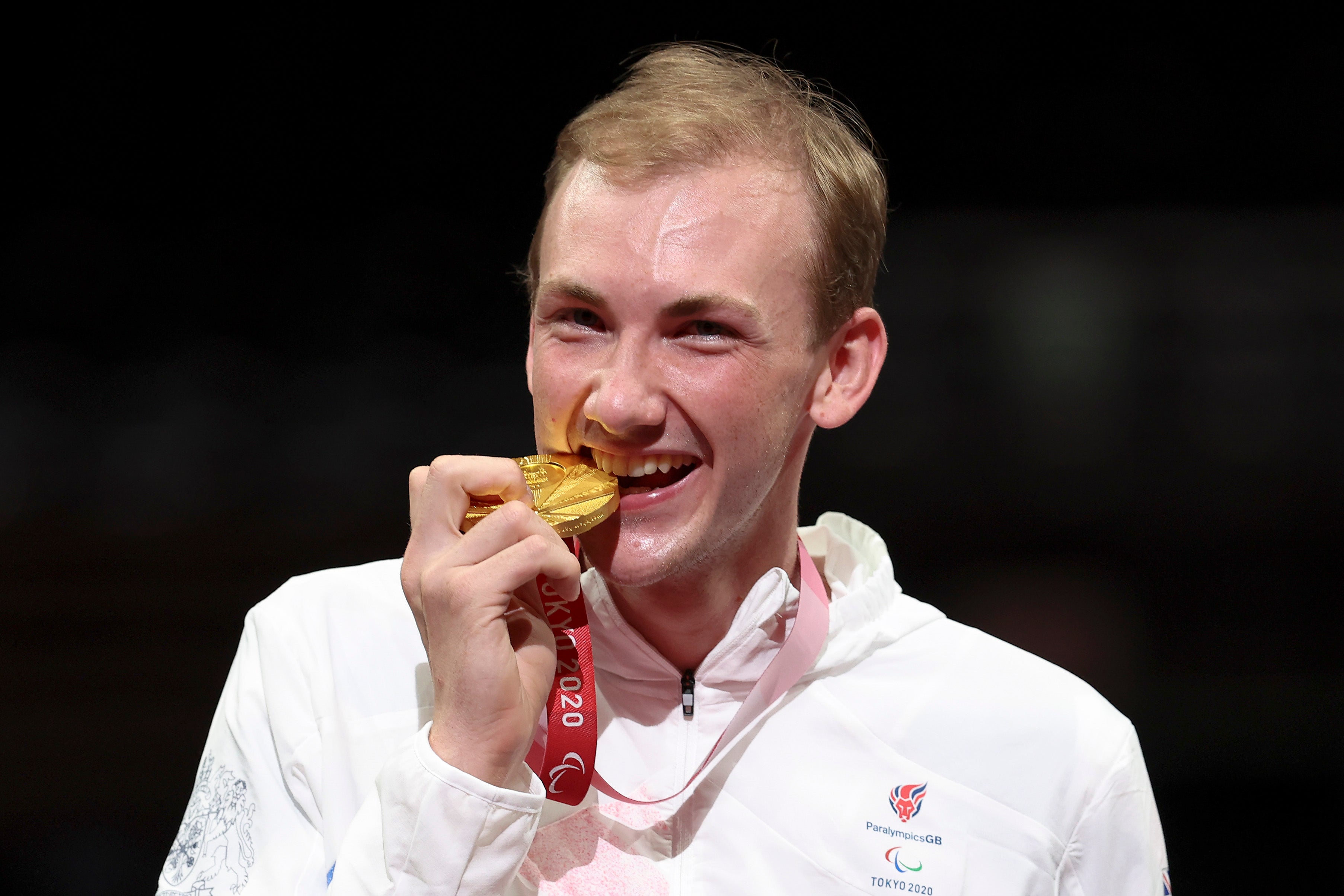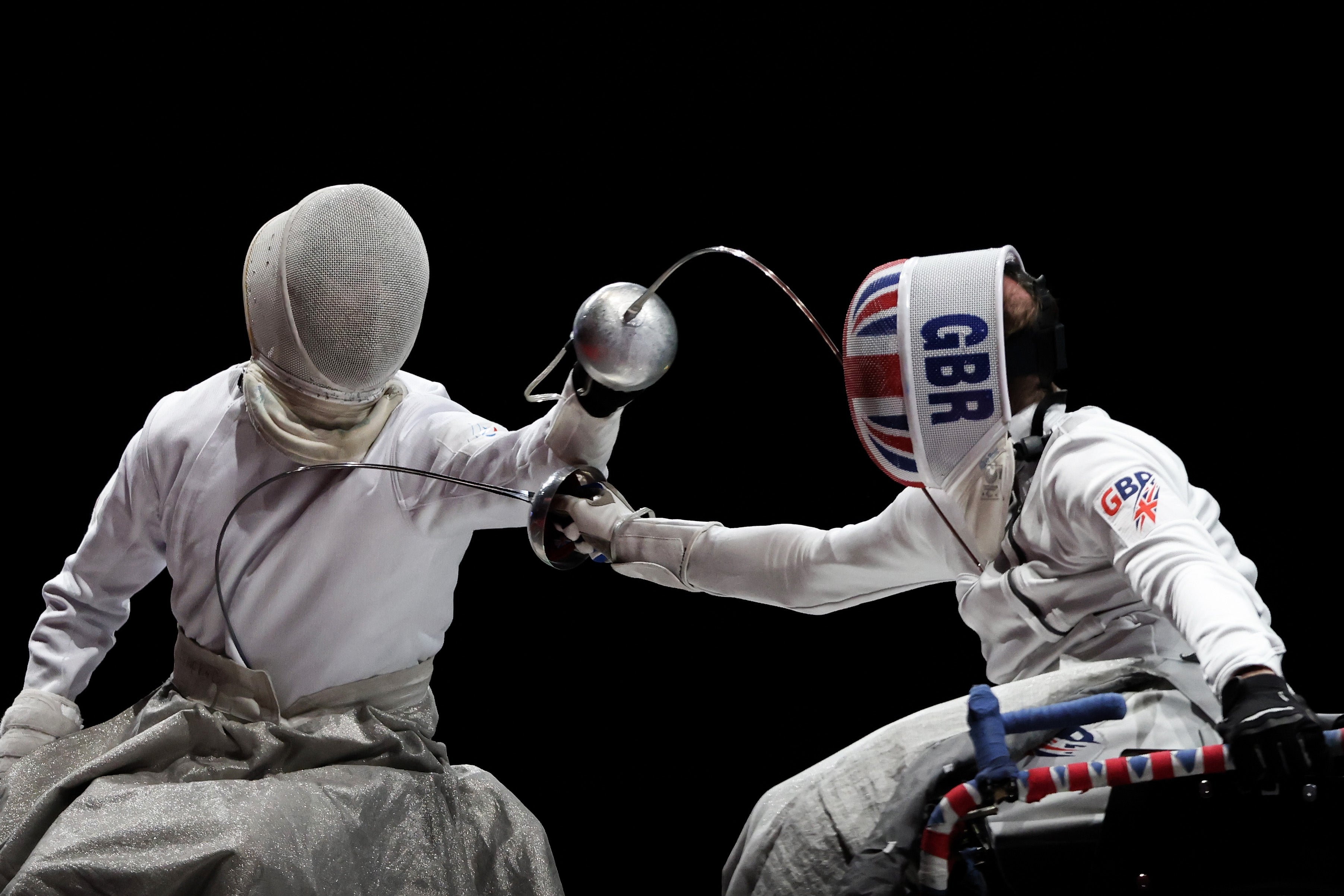Paralympic champion reveals horrific concussion experience – ‘I didn’t know who I was’
Wheelchair fencing star Piers Gilliver is now targeting a third Paralympics but had to spend months in the dark of his bedroom earlier this year

Paralympic champion Piers Gilliver revealed he spent three months in a darkened room “unable to even watch a movie” as he battled vicious concussion symptoms.
The wheelchair fencer, who became Britain’s first gold medallist in the sport for 33 years at Tokyo 2020, is no stranger to taking blows to the head.
As an epee fencer, it is a valid target area in his discipline and he would be hit on the head dozens of times in the average four or five-hour session at his training base in Bath.
“I never really took concussion seriously,” he says. “I only ever heard about mild versions, people getting a knock on the head, feeling a bit sick and coming back pretty soon. You never really hear about it in fencing.”
Yet the hit he took in routine sparring in early January will stay with him for the rest of his life.
“I started to feel really strange,” he remembers. “Any kind of light, noise, stimulation, my brain just couldn’t deal with it and I was in my bedroom in the dark for months.”
Gilliver talks about dizziness, brain fog, lights burning his eyes; confusion, the feeling of being jetlagged and “waking up at three in the morning and not knowing who I was.”
One day he went down to the kitchen and tried to cook something: “I just couldn’t remember anything, I didn’t know how to do anything.”

The 29-year-old was living with his girlfriend Valeriia Abdualimova, a Ukrainian former wheelchair fencer. It was a torrid time for the couple with Valeriia’s family remaining in Kharkiv on the Russian border, a city heavily affected by the ongoing conflict in the region.
Valeriia went to be with her family early in 2023 and the pair have subsequently spent months apart this year.
Gilliver returned to training in March and got concussed again, deepening the spiral. In all, concussion would keep him off the piste for seven months before he eventually returned to win gold and silver at last month’s World Championships.
“It’s absolutely been a rollercoaster and in some ways, a positive experience,” he says. “It’s been a chance to rethink how I train. I’ve had to try totally different things and almost start from scratch as an athlete.
“The content of my training schedule has really changed, it’s a lot more individual now and it feels better.”
Gilliver is one of over 1,000 elite athletes on UK Sport’s National Lottery-funded World Class Programme, allowing them to train full time, have access to the world’s best coaches and benefit from pioneering medical support – this is vital on his road to recovery.
“The support from The National Lottery has been completely essential, I have no idea what things would have looked like if I didn’t have that support,” said Gilliver.

Gilliver has been a full-time fencer for 13 years and had never missed a single World Cup in that time – making this enforced break a life-changing period of time.
Simply put, it has motivated Gilliver to double down on his bid to qualify for a third Paralympic Games and add to his haul of one gold, two silvers and a bronze.
“It’s been a very difficult time for my team, my friends and family but it’s good to see what you can learn from it,” he added. “This was the first time I’d ever asked myself, ‘what if this is the end of my career?’
“It’s given me a renewed sense of why I’m doing it and has reminded me that this sport is still who I am and this is what I want to be doing.”
National Lottery players raise more than £30million a week for good causes including vital funding into sport – from grassroots to elite. Find out how your numbers make amazing happen at: www.lotterygoodcauses.org.uk #TNLAthletes #MakeAmazingHappen
Join our commenting forum
Join thought-provoking conversations, follow other Independent readers and see their replies
Comments
Bookmark popover
Removed from bookmarks